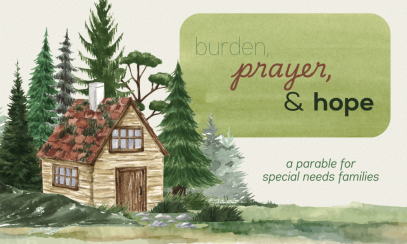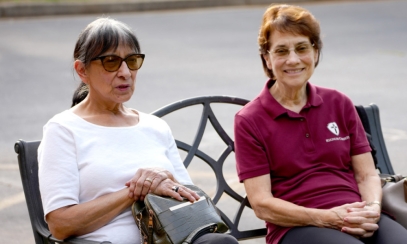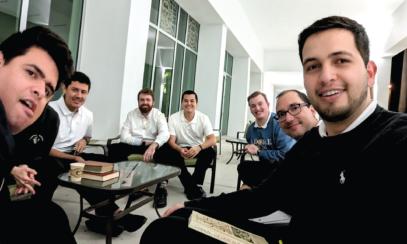
All Life Is Sacred
Your Questions About End-of-life Care Answered
Your Questions About End-of-life Care Answered
As Christian believers, we hold the countercultural conviction that all human life is sacred. As believers in the God-made-Man, we assert that all human persons must be loved, honored and protected, especially those who are vulnerable and weak.
As Christian believers, we hold the countercultural conviction that all human life is sacred. As believers in the God-made-Man, we assert that all human persons must be loved, honored and protected, especially those who are vulnerable and weak.
While such love includes the preborn, those with special needs and the elderly, we have reached a time in which this conviction must be boldly asserted for those who are seriously ill. Such an assertion is especially challenging at a time when scientific advancements are extending life and taking the West to new levels of medical possibilities.
In light of these medical potentialities, there are certain regular, ongoing questions about end-of-life care. Here are three of the more prominent ones:
If I’m a medical proxy, am I bound to fulfill any request made by my loved one?
If a loved one asks you to be their medical proxy, it is fundamental that you are clear about his or her wishes. It’s also important for you to indicate what your own beliefs are and what you can or cannot consent to, in terms of your own conscience.
In spite of any possible requests from the patient (or other loved ones), you cannot in any way, or in any situation for any reason, betray moral truth, authentic human dignity or your own conscience formed in truth. As a Christian believer, this is a non-negotiable.
Since they are a part of basic human care, when is it possible to suspend nutrition and hydration?
Every human person has dignity and a human vocation, a call to live and cherish our shared humanity. This acknowledgment of human dignity, and of our solidarity as human beings with one another, demands that we generously provide basic human care, which includes food and water (even if administered artificially). If these basic needs are suspended, then we are starving or dehydrating a person to death. This would be euthanasia since it is the deprivation of food and water that is causing death, rather than the person’s illness or medical condition.
The only time that food and hydration can be suspended is when a person’s body is unable to assimilate them and/or the food and water actually cause harm to the person. In these cases, the good offered by food and water would not be serving any good and so they must be suspended. In such a situation, the suspension of food and water would not be euthanasia since the person’s medical condition is causing death, not the suspension of food and water.
This last point must be emphasized. In the discernment of when to suspend nutrition and hydration (even if artificially administered), the rule of thumb is the pressing question: What will cause the death of this person? If death occurs because of the removal of food and water, then it is euthanasia. If, however, death is caused by the person’s medical condition or illness, then it is not euthanasia (even if food and water had to be suspended toward the end of life because of the illness and the inability of the body to assimilate them).
What if pain medication ends up taking a person’s life? Is that euthanasia?
If someone gives an intentional and purposeful overdose of pain medication to a suffering person with the hope of ending life, then the act is clearly euthanasia.
But most people do not fall into the scenario just described. Most people have good will and want to do the right thing and make sure their loved one isn’t suffering. Here’s a helpful principle for such situations: the level of pain medication can be given to match the level of a person’s pain.
In applying this principle to people who are suffering intensely, it may happen that the pain medication will cause the loss of mental capacity and hasten the person’s death. In such a case, the determining factor regarding the moral status of the proxy’s action is whether the intention was to take life or solely to lessen pain, even if there was the foreseeable but unintended consequence of the loss of life.
While the three questions above provide some guidance, their shared foundation is the belief in the dignity of every human life, even life that is weak or possibly distressing to some.
The best response we can give to others is love, an authentic love that serves truth. As a help to knowing truth, we must work to form ourselves in the mind and spirit of the Lord Jesus and come to a deeper understanding of and respect for all human life.
Father Jeffrey Kirby, STD is a moral theologian, pastor of Our Lady of Grace in Indian Land and the author of We Are the Lord’s: A Guide to Difficult End-of-Life Questions, available on Amazon.



